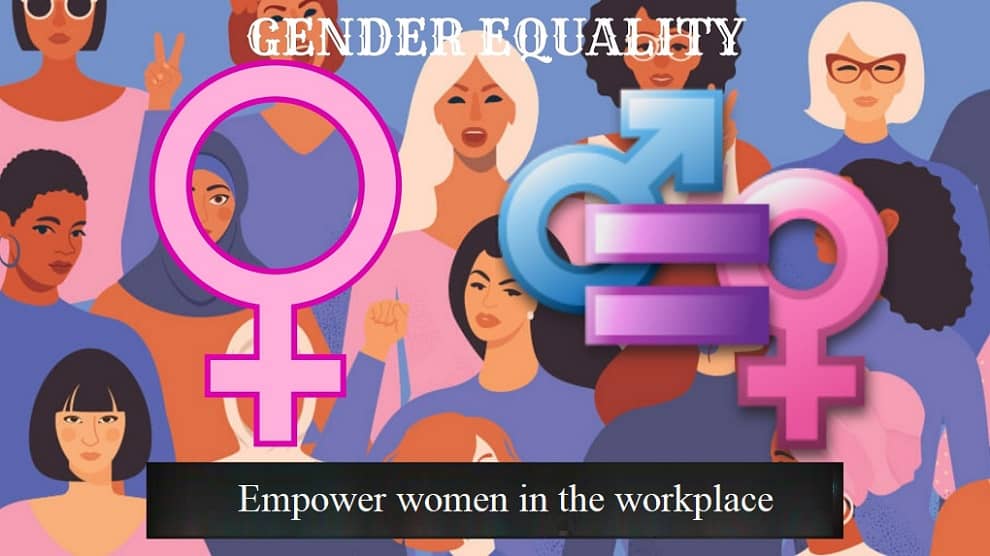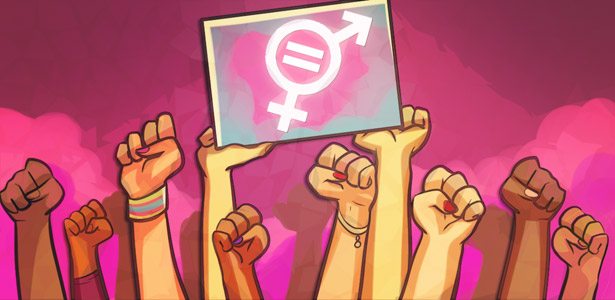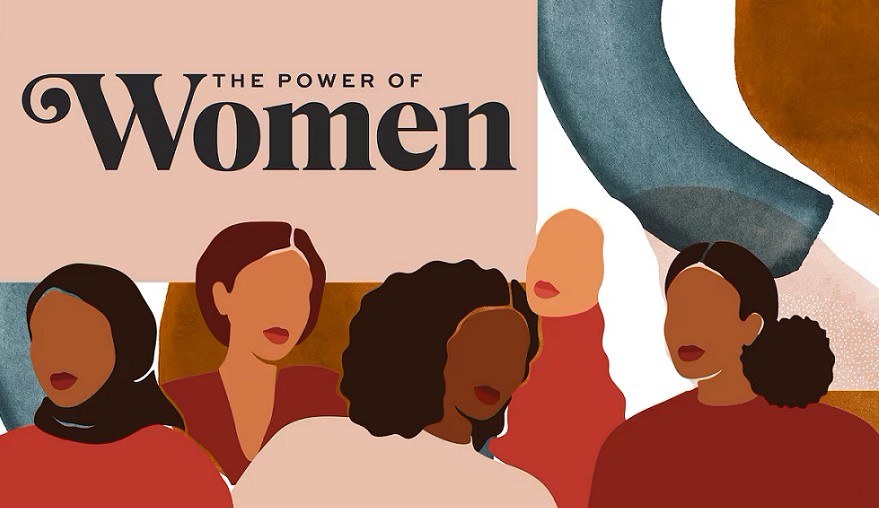First, let’s familiarize ourselves with the word empowerment. What does empowerment mean?
Empowerment means that people have the power to control their lives. People can get the support they need and access to the right resources.
Empowerment means people are equal citizens.
They are respected and trusted in their communities. You can’t empower others; you can’t empower someone unless you are empowered yourself.
Now that we understand what empowerment is, let’s understand women’s empowerment.
Women’s empowerment can be defined as promoting women’s self-esteem, their ability to make decisions for themselves, and their right to influence social change for themselves and others.

Now you know what Empowerment and Women’s Empowerment are. The next question is:
“What is the importance of empowering women in the workplace?”
The answer is simple. Empowering women in the workplace gives them more control over their finances and careers. By investing in training, mentoring, equality programs, educational grants and promotion to leadership positions, we ensure the career growth is essential to creating a long-term productive workforce.
How do you empower women in the workplace?
1. Employment of Women – Women must be given opportunities to work in a variety of industries. Also, women should be on the board seat so that they can propose new ideas.
2. Encourage women to take the lead: Leadership isn’t just for men. We need to break this stereotype by encouraging women in our organizations to take more risks and seize opportunities. It gives them a platform to showcase their talent and skills to accomplish something extraordinary.
3. Promote a fair maternity policy: Establish a fair maternity policy in the workplace to support pregnant women financially and emotionally. By empowering them with a relaxed and equitable maternity leave policy, we ensure that they enter the organization with the same enthusiasm after the birth of their child as they did when they joined.
4. Provide equal opportunities -Promoting equality for women in the workplace requires more than treating women with respect and basic decency.
It also means not separating or ignoring them and allowing access to equivalent resources. The idea is to provide equal opportunities to help both genders grow and thrive.
5. Flexible working environment – These are the many life roles women play on a daily basis. To empower women in the workplace, new policies can be put in place to help women achieve work-life balance. Working from home and flexible working hours are just a few examples.
6. Prevention of sexual harassment: Empowerment means giving equal opportunities, but before that we need to make sure we are providing a safe working environment for women. Nothing is more important than the safety of women within an organization. Empower women with strong anti-sexual harassment policies, followed by swift remediation of misconduct with strong disciplinary actions
7. Believe in #EqualForEqual: Each for Equal was a theme of 2020 International women Day To implement it in the true spirit, we need to challenge stereotypes, fight prejudice and together create a world of greater dignity and greater opportunity for all. It has to be implemented in the true spirit within your organization. Treat female employees as respectfully as you treat your male employees.
Give them an equal opportunity to speak up and excel in their respective fields.
8. Equal Pay for Equal Work – This provision states that equal pay should be paid for equal work between male and female workers for work of the same and similar nature, and that female workers should . No discrimination should be made against female employees in the matters of transfers, training and promotion etc
9. Increase flexibility – Offer work from home options.
88% of working women cite flexibility as the most important factor in determining job satisfaction, even more so than pay. As a workplace ally, you can support women by advocating flex elements such as flexible working hours and remote and hybrid working arrangements.
10. Set goals to improve gender diversity: Change doesn’t happen overnight. First, we need to see how we are currently acting with regards to gender diversity.
11. We can ask for suggestions for improvements the company can make, then we can ask employees for their inputs and set business goals to improve gender diversity in the workplace.
12. Retaining the lessons of the pandemic: Flexible working hours, hybrid working culture promotes a culture of diversity and inclusion.

Here is a list of the 10 most Inspiring Indian Women Who Became Role Models for Empowerment
These Her 10 Pioneering Indian Women went Beyond Gender Stereotypes and Pave the Way for Empowerment
1. Gita Gopinath– Also known as The Fiscal Scholar. She is an Indian-American economist who has served as the first deputy managing director of the International Monetary Fund, since 21 January 2022. She had previously served as chief economist of the IMF between 2019 and 2022.
2. Kalpana Chawla – Worked in America at NASA. Unfortunately, she died when the space shuttle crashed while landing on Earth. She is a truly inspirational woman and she was the first Native American woman to go into space.
3. Indra Nooyi – She made the world sit up and take notice when she became the first female CEO of the world’s second Largest Corporation in the world. She has a long list of titles to credit including the third most powerful mom in the world.
4. Indra Gandhi– The Key figure in the Indian National Congress, she did not let any setback deter her from her vision. She founded anew party and inspired many to follow her. Her indomitable spirit is certainly an inspiration to women all over the world.
5. Aishwarya Rai – Miss World in 1994. She has used her prominence to be a part of many charities and social causes like eye donation and eradication of Polio. She is actively involved in raising awareness of the UN’s poverty alleviation activities.
6.Priyanka Chopra– Another Miss World, who has made her way to the top. She has won many National Awards. She has also been awarded the Padam Shri, the fourth- highest award for civilians.
7. Ela Bhatt– In 1972 Ela founded the Self- Employed Women Association of India (SEWA). She held the position of General Secretary from 1972to 1996. She has been awarded many National and International award including Ramon Magsaysay Award (1977) and Padma Bhushan (1986).
8. Mary Kom– She is the only women boxer who won a medal in every one of the seven world Championships. She has broken barriers to make the first women boxer and as a boxer of any gender.
9. Dipa Karmakar – She is the first gymnast who made India to win a bronze in 2014 during Common wealth games.
10. Hima Das – Who is also known as Dhing Express. She is the first Indian athlete to win a gold medal in a track event at the IAAF World U20 Championships. The government recognized her achievement by appointing her as a Deputy Superintendent of Police (DSP) in Assam Police as part of the state’s Integrated Sport Policy.
These are just a few of the women who have broken stereotypes in the field of work. The transition is always a tough place. Especially if you were taught a certain way of thinking from birth has two schools of hers at odds on the battlefield of the female mind, giving her a confused sense of identity. Luckily, Indian women stand up every day, stand out like a beacon, and embrace themselves.
After centuries of injustice, women can be their true selves.
Gender stereotypes no longer exist in the age of individuality. While the debate over women’s rights is raging all over the world, patriarchal love affairs will not turn into a just system overnight.
There is still much to grow, but just recognizing that it is possible to fight for women’s empowerment in India can have a positive and powerful impact on how women see themselves.
Conclusions: Empowered women produce higher performing jobs and healthier work environments.

